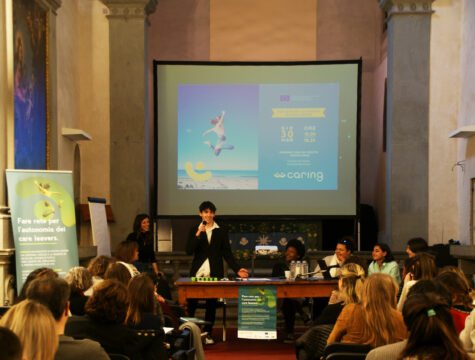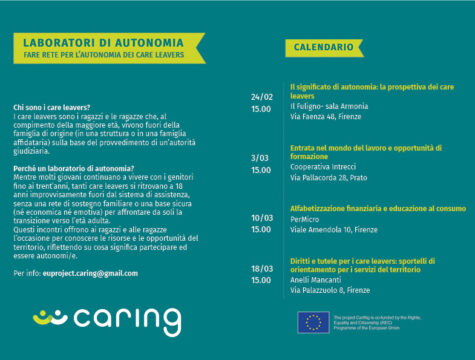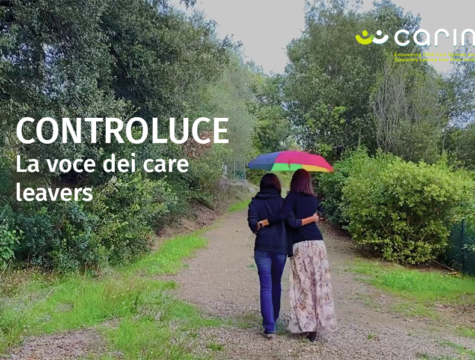The CarINg project focuses on boys and girls living outside their family of origin. The aim of the report “Analysis of the standards for out-of-home care: legal framework” is to provide a comprehensive overview of the standards for alternative care (residential or foster care) at international, national and local level.
In the introductory section, the project partners provide a brief description of the main policy indications elaborated at international level by the “UN Convention on the Rights of the Child” and the “Guidelines on the Alternative Care of Children“.
The second section is dedicated to the Italian national standards, an outline of the reference legislation and the guidelines adopted in Italy on the topic of alternative care of children in residential services and in foster families. This is followed by a focus on care leavers, starting from the definition of the term in the Italian context and then focusing on the main trajectories of leaving care identified; finally, the report briefly traces the evolution of national interventions and policies addressed to them.
The activities of the project CarINg are carried out on the Tuscan territory and for this reason the report dedicates space to the description of the regional standards, both concerning the fostering process and the residential structures that welcome care leavers and future care leavers. The analysis continues with a description of the system in the two territories where CarINg activities are carried out, i.e. the Municipality of Florence and the area of Prato.
The report concludes with some reflections aimed at placing the project CarINg in the presented legal framework, both for care leavers and for the various service providers involved, underlining its potential long-term impact and the critical elements to guarantee the sustainability of the results at the end of the project.
You can browse the report or download the full publication from the Repository.




